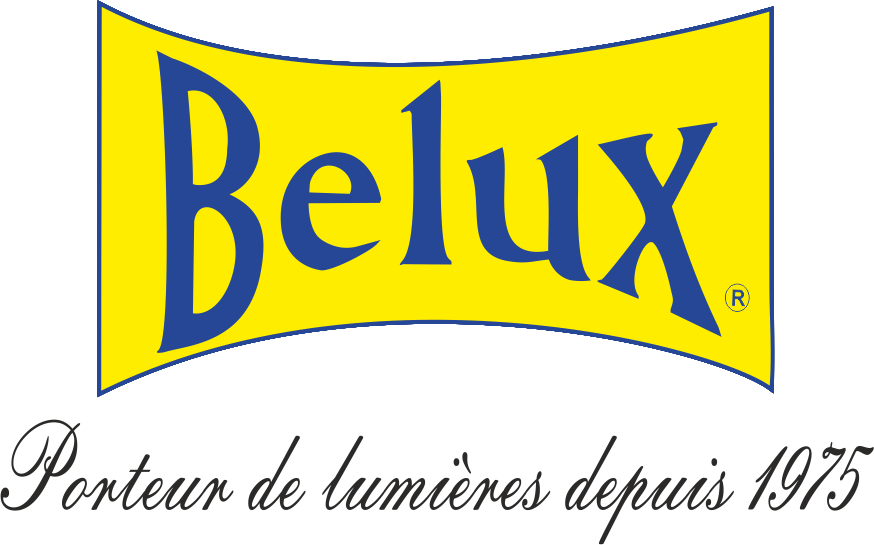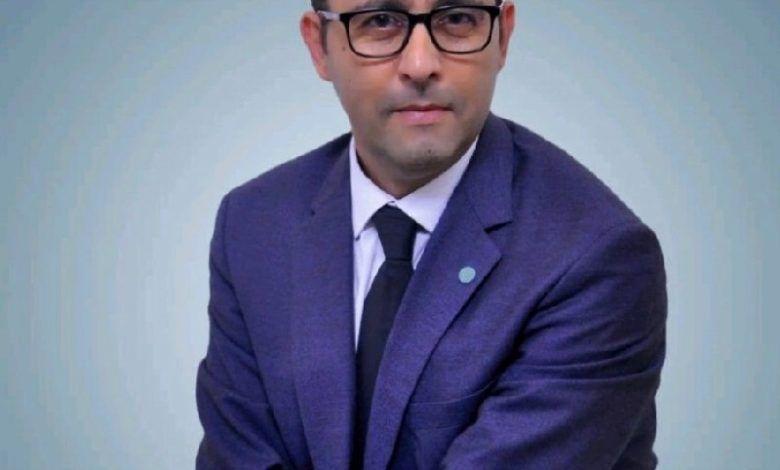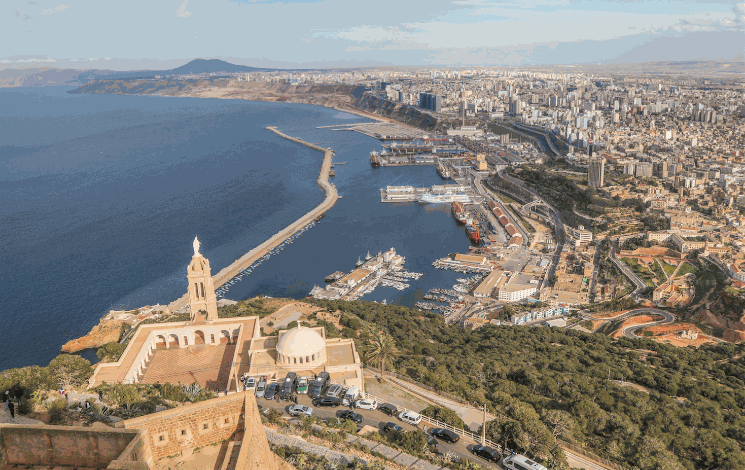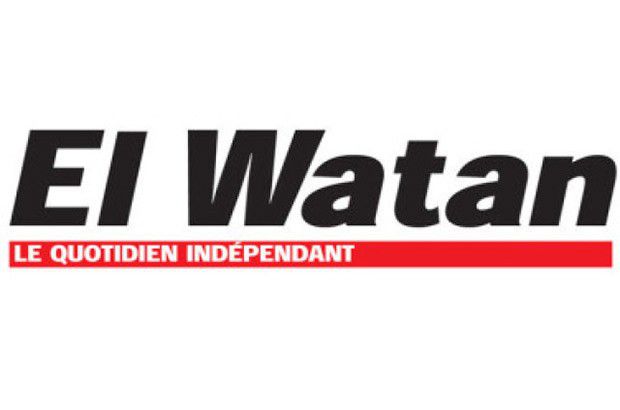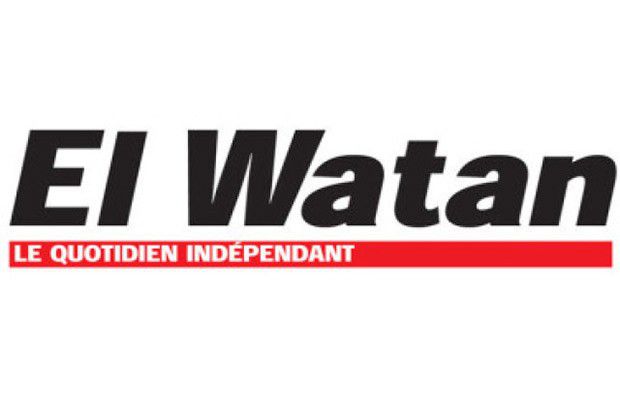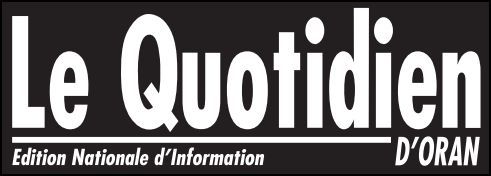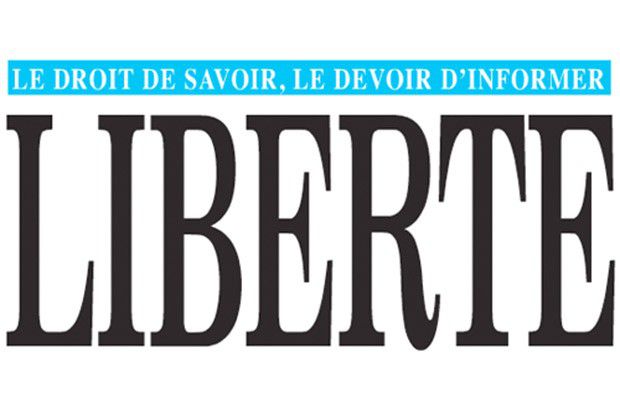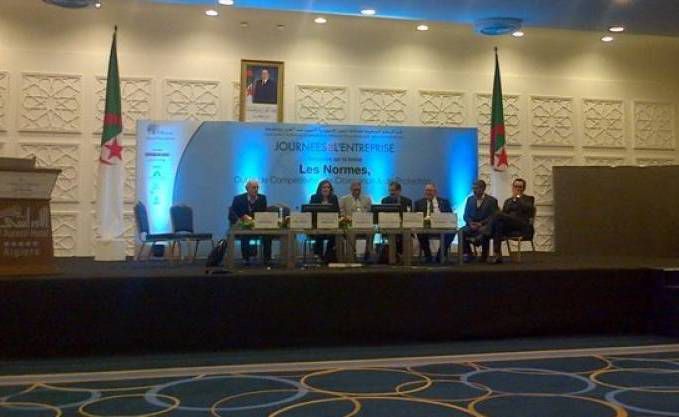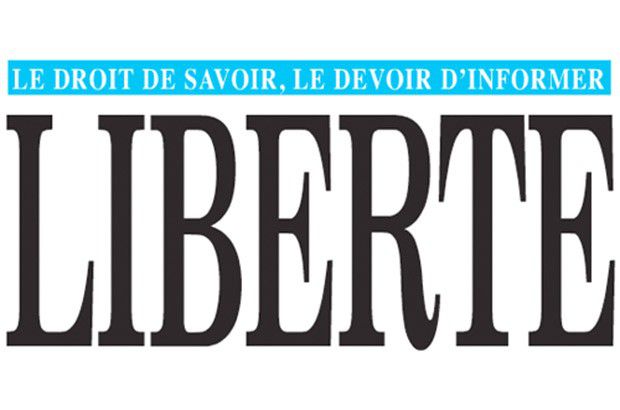Press Review
Feature 1
Adapt these three columns to meet your graphic needs. To duplicate, delete, or move columns, select the column and use the top icons to perform your action.
Feature 2
To add a fourth column, reduce the size of these three columns by using the icon on the right of each block. Then, duplicate one of the columns to create a new one as a copy.
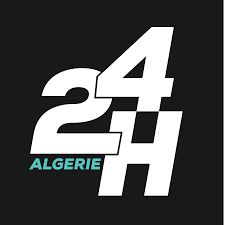
Interview with MR Abdelkader Belaroui: light on the future, Belux and CRASC light the way
By Ghada Hamrouche -21/02/20240
In an innovative approach, Belux, leader of public lighting in Algeria, has just sealed a fruitful collaboration with the Research Center in Social and Cultural Anthropology (CRASC). Abdelkader Belaroui, founder of Belux, shares his bold vision focused on research, innovation and the creation of a benevolent luminosity for Algerian citizens. This interview reveals the shared aspirations and ambitious goals of transforming public lighting into an informed, modern and safe urban experience.
24H Algeria: You have just signed an agreement with CRASC. Why this need and what are your aspirations for this partnership?
Abdelkader Belaroui: We call on skills, researchers, to help us think better and find innovative ideas to improve the future products of Algeria of tomorrow. The partnership signed with CRASC today allows Belux to move forward in the light of the knowledge provided by researchers. We cannot evolve alone; if we are not listening to researchers, universities and research centers, they must guide us towards development and initiative. With their contribution, Belux and other companies we want to see take the same path can go further for urban comfort. The temples of knowledge must guide us to invest precisely for the needs of the citizen and the city of today and tomorrow.
What are the goals you set for yourself?
It’s just lighting. Today, it’s no longer called street lighting, but light furniture. Lighting becomes street furniture, and it is this street furniture that creates urban comfort. It is essential today to fill these arteries so that citizens and their families can enjoy the urban space, especially today, with climate change – the year 2023 was the warmest in history – the Algerian population will live much more outside and spend nocturnal moments. That is why it is necessary to improve the quality of the nightlife, especially what we call in the lighting sector, transform the places into night tourism.
Belux is a corporate citizen that is part of several sponsorship operations in the academic, employment and entrepreneurship fields. What are your aspirations through these approaches ?
Belux has been at the initiative for several years. When the former Head of Government Mr. Mouloud Hamrouche created the first entrepreneur’s fair, we activated to create future entrepreneurs for the management of the city and the management of street furniture, including public lighting. We have always sought to support young people who are taking their first steps in the world of entrepreneurship and professions that revolve around public lighting.
What does Belux represent today in the world of national and regional street lighting?
Belux is the first private company since independence. It was born in a difficult context and crossed a path in an environment generally hostile to private initiative, but we learned a lot over the years thanks to our participation in international fairs and exhibitions, my participation in international associations related to the city and mainly related to lighting until the start in 1989 of a beautiful international initiative. Great men I knew in the world of light and who created the festivals of light of the city of Lyon. From 1989, we managed with the people of Lyon to create LUCI which is today the Association of Cities of Lights around the world. Light, which is at the heart of our business, is a strategic and determining element of urban planning. It increases the sense of security for the inhabitants of the place. It is a vector of social integration and promotes many rehabilitation programs.

Street furniture: the comfort of the inhabitants as a priority
BY SI Merabet Nour Eddine
After establishing a collaboration with the Research Center in Social and Cultural Anthropology (CRASC) in Oran last week, the founder of Belux, Mr. Abdelkader Belaroui, went to Tiaret. Its objective was to meet the students carrying projects, the local associative movement and some design offices to share its vision focused on research, innovation and creation in the field of urban lighting in cities. According to Mr. Belaroui, urban lighting is no longer limited to its traditional function. Today, we talk about light furniture rather than public lighting. Light becomes an essential element of urban furniture, contributing to the comfort of citizens. It is crucial to furnish these spaces so that residents and their families can fully enjoy the urban environment. Well-designed lighting provides the city with a soothing and improved quality of life without compromising resources. It is about adopting sustainable and energy-efficient solutions, while creating attractive and safe lighting environments. Abdelkader Belaroui, with his expertise in the field of lighting, shared his knowledge and innovative ideas with students, local associations and design offices present during his visit to Tiaret. The collaboration between Belux and CRASC opens new perspectives for the research and development of urban lighting solutions adapted to the needs of the city and its inhabitants. This initiative aims to strengthen the quality of life of citizens by creating a welcoming, aesthetic and safe urban environment, while preserving resources and adopting sustainable practices.
Start with the customer – find what they want and give it to them.


In Algeria, the quest for “a competitive, attractive and sustainable city” is still a distant goal.
By Fayçal Métaoui -22/02/2024
Several experts noted the problems related to urban planning and questioned the «city of tomorrow» in Algeria, during a debate organized on Tuesday, February 20, 2024, at the Royal Hotel in Oran, by the private company Belux and the Centre de recherche en anthropologie sociale et culturelle (CRASC), on the theme of "Quality of life and competitiveness of the city: reality and prospects for Algerian cities".
Messaoudene, a teacher at the Ecole Polytechnique d'Architecture et d'Urbanisme d'Alger (EPAU), first spoke about the competition between cities to reach international standards and improve the attractiveness and quality of the living environment. “A competitive city is defined by its ability to attract the most residents, investors, businesses and tourists. On a global scale, several rankings have developed to measure the attractiveness, quality and competitiveness of cities. The first ranking cities appeared in the 1970s in France, then extended to international studies conducted by consulting firms and organizations such as the World Economic Forum, Heritage Foundation or the World Bank.” she said.
According to her, the two criteria considered are purchasing power and quality of life. She cited the Mercer 2023 ranking of quality of life in cities. European, Canadian and Australian metropolises top the list. “Algeria is in 189th place in this world ranking out of 241. We still have efforts to make,” warned Maha Messaoudene.
Hassi Messaoud, la ville paradoxale
She said that a competitive city is one that provides its businesses and industries with solutions to “develop employment, increase productivity and increase the incomes of its inhabitants.” The «competitive city» must therefore be economically efficient.
“The notion of competitiveness has been broadened to include quality of life and the environmental dimension. Quality of life is defined as the supply of housing, transport, culture, education, innovation, health, safety and all urban services. The environmental dimension refers to natural, ecological resources and all the actions carried out by a city to create a clean and sustainable environment. We cannot rely solely on the economic aspect. For example, Hassi Messaoud is an economically attractive city, but not a residential one. Most of the people who work in Hassi Messaoud live elsewhere,” she explained.
She said that in Algeria, competitiveness is a strategic national issue in the National Spatial Planning Plan (SNAT). In 2013, the National Agency for the Development and Attractiveness of Territories (ANAAT) was created «to monitor and evaluate the application of what is provided in this scheme».
“The objective is to create a qualitative, competitive, attractive and sustainable Algerian city that can meet the needs of its inhabitants and the productive changes and contribute to a true urban culture and identity. This objective results in a set of strategic actions such as the promotion of a sustainable city, the renewal of the urban form, the adaptation of the city to the requirements of economic activities, the preservation and enhancement of the urban ecosystem, combating exclusion and marginalization and upgrading of urban areas with disabilities,” explained the EPAU teacher. But what is the state of Algerian cities? Are they qualitative and competitive?
«Cities ex nihilo, informal cities»
According to her, the old, pre-colonial, colonial cities are suffering from a decline, are being battered by time and by the evolution of needs, practices and lifestyles. It considered that these cities require revitalization operations to be qualitative, healthy and competitive.
“Intervention in these types of cities is tricky because the sites are already occupied. In Algeria, there are also the Ex nihilo cities, the fragmented city, that of contemporary urbanism. And there is also the autoconstrout city and the functionalist city. These cities are developing on the fringes of the parent city, on the outskirts and contribute to the emergence of new urban centralities, some of which aspire to be promoted to a new rank by becoming autonomous,” she stressed.
An informal city develops, according to her, in the urban interstices challenging public authority. “In these neighborhoods, the elementary rules of architecture and urbanism and social and economic rules are outrageously flouted to the point of causing a spatial, social, aesthetic disorder that contributes to a number of inconsistencies such as the loss of urbanity, the rise of the informal, land and real estate speculation, spatial sprawl at the expense of agricultural land, concentration in large cities, loss of landscape quality, loss of building identity and visual pollution. However, the State has made great efforts to alleviate the difficulties and increase the urban offer and improve the quality of the living environment,” said Maha Messaoudene.
« Sustainable Urbanization »
Mohamed Srir, a teacher at EPAU, said that the sustainable city is the one that offers a quality of life to its inhabitants without putting resources at risk.
“A city that takes into account urban, social, health, cultural and ecological well-being. There is also economic attractiveness and adaptation to climate change. Among the goals of the sustainable city is to achieve carbon neutrality. Every year, we have flooding and drought problems in Algeria (…) In Algeria, we do a lot of diagnostics without taking action,” he said.
The benchmark for making assessments remains, according to him, «Agenda 2030», a United Nations sustainable development programme based on 17 goals (SDGs). “It is a set of challenges: ending poverty, fighting hunger, access to quality health and education, gender equality, access to clean water, use of renewable energy, etc. Goal 11 is about sustainable cities and communities. The 2030 Agenda insists on intervention mechanisms that make use of national and local urban public policies,” stressed Mohamed Srir.
He recalled that in Algeria, the first law that incorporated the notion of «sustainable development» dates from 2001. Other laws have taken into account this notion after (cities, environment, energy, coastline, etc.). “Algeria’s legal arsenal is broad and diverse. The legal framework is there to implement sustainability at the urban level. The Government Council oversees the national strategy for implementing the Sustainable Development Goals through a cross-sectoral committee. This committee defines the roadmap to achieve the SDGs, Algeria being a signatory to the 2030 Agenda since 2015. It is important that the Algerian private sector and civil society be involved in this process,” he said.
He said that Algeria has set priorities: «housing, sustainable urbanization, risks, environmental impact related to waste management, pollution reduction and access to green spaces».
«The city is the place where men have been sedentary for 70,000 years»!
The architect, planner and scenographer Halim Faidi asked several questions during his speech: "What is our DNA? Who are we? Where are we from? And how do we react? Since 2001, we have isolated the human genome and we have understood that culture is part of DNA. We have to talk about identity, about our geographical and historical space. The greatest danger is to think we are right.”
The architect, planner and scenographer Halim Faidi asked several questions during his speech: "What is our DNA? Who are we? Where are we from? And how do we react? Since 2001, we have isolated the human genome and we have understood that culture is part of DNA. We have to talk about identity, about our geographical and historical space. The greatest danger is to think we are right.”
He continued, “What is the city for? What is the difference between the city and the countryside? How do you define an urban, rural and rural. The city is a living entity crossed by financial, cultural and event flows. Oran was crossed in 2022 by the flow of the Mediterranean Games. What did we learn from this flow? Did we learn all the lessons? Events make it possible to work together. One main rule must be to put the human being at the centre of all devices. People make the city, not the other way around. To make a human settlement, it is necessary to combine five elements: road, earth, fire, water and man.”
“ So we helped create the first nation states in the world.”
Halim Faïdi spoke about the history and identity of Algerians. Algerians who are part of Africa. A continent that has 15,000 years of historical depth. “The oldest library in the world is in Timbuktu, not Oslo. And 3000 to 5000 years of historical and cultural depth is in North Africa. France, Algeria’s last colonizer, is only 1,500 years old. In Algeria, there are Phoenician ports. So we helped create the first nation-states in the world. The Vandals, the Romans, and the Ottomans passed too. The interest we have in inscribing ourselves in what we were, allows us not to isolate ourselves in a single figure, that of saying that we are Arab, that we belong to Arabity. Algeria is an old land full of tangled cultures. The Mediterranean is the place of all passages. Sharing is the evolution of society. The city is the perfect home for sharing: the school, the supermarket, the road…” he said.
According to him, the digital city is settling in front of the physical city. “It takes services and has the same social codes. In this digital city, you can go in, out, buy, sell, learn, communicate, teach… What will become of cities? Workspaces? We move more, we consume more energy, we pollute more,” he warned.
According to him, the architects of tomorrow will be those of the internet who will recreate the social and exchange spaces inside the canvas. “Paradigms will have to be revisited. We are all augmented. Wearing glasses is a way to increase vision. The cell phone is a prosthesis that is moved from the brain. We rely on the phone to memorize the numbers. We are entering an era of hyper connectivity, our brain is already conditioned to accept hybridity,” he warned.
“In 15 years, Africa’s urban population will grow from 400 million to 1.2 billion. What awaits them is the non-life (blocks of buildings). I’m a (apartment) number, I go through a cage to get a block, and I live in a cell. It’s prison language. People need shared spaces like the street, the alley, the square…” he added.
Faidi cited Ghardaïa, as a model of sustainable development for 3,000 years, and where Ksar Tafilelt, «the first eco-citizen city in the world», a project launched in 1997. Ahmed Nouh is the founder of his city where local materials are used for construction such as stone, earth, plaster, lime, instead of concrete.

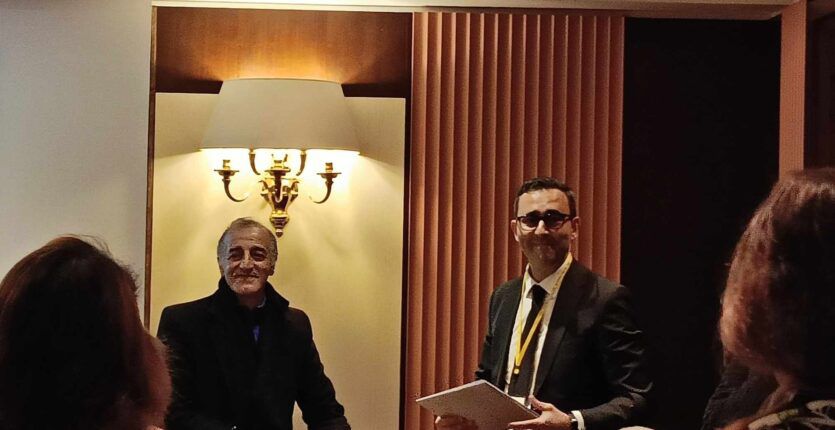
BELUX Lighting and CRASC combine their expertise to rethink the Algerian city
22 février 2024 at 18:21
ORAN – On the occasion of Journée de la ville (February 20, 2024), BELUX Lighting and the Centre de recherche en anthropologie sociale et culturelle (CRASC) have signed an unprecedented partnership. It aims to evaluate and then enhance the impact of light, and public lighting in particular, on cities.
The conclusion of this rapprochement between BELUX and CRASC took place during a study day under the theme «Quality of life and competitiveness of the city: reality and prospects for Algerian cities», which the company organized on Tuesday, February 20 at the Royal Hotel in Oran.
Several renowned architects and university professors gave lectures on the theme of the Algerian city and the challenges it faces at this convention. Examples include the architect-urbanist Halim Faidi, Maha Messaouden and Srir Mohamed, both teachers at EPAU (Algiers).
Making Algerian cities more liveable
The debates focused on how to rethink Algerian cities, especially those in the interior and the South, which suffer from marginalization, poor planning, uncontrolled urban expansion, and the decrease or even absence of green spaces.
In the end, the various experts agreed that the efforts of local authorities, businesses, urban planners, but also citizens, must converge to make Algerian cities more competitive and more attractive, which offers a pleasant living environment.
These collective efforts are all the more necessary in a world that is, on the one hand, increasingly competitive, and on the other, increasingly unstable and where energy management is a major issue since the covid-19 episode19 the outbreak of the Russia-Ukraine conflict.

Belux Lighting and CRASC: an unprecedented collaboration to understand the urban lighting of tomorrow
By Kamel Lamy -24/02/2024
Belux Lighting and CRASC have just concluded an agreement in Oran, raising questions about the link between a manufacturer of street lighting furniture and a research institute in social anthropology. Hanifi Belaroui, managing director of Belux, clarifies: "This agreement marks the beginning of a collaboration that began several months ago, formalized today on the occasion of the city’s national day. It is an alliance between an economic player in the lighting sector and a research centre. As a lighting company, we partner with them as knowledge producers. Together, we reflect on new global and national challenges.”
By investing in social research, Belux Lighting seems to recognize the importance of understanding the needs and behaviours of populations in the planning and use of urban spaces. Clearly this collaboration aims to integrate a social and cultural dimension in the development of lighting solutions, in order to better meet the expectations of local communities and optimize the impact of lighting projects on their quality of life.
Lighting remains a crucial element in our urban spaces. But are our cities sufficiently lit? “Like everywhere else in the world, some cities are well lit while others are less so. In Algeria, the authorities have made significant efforts to adopt new technologies, such as LED and solar. However, as with any new technology, adjustments may be necessary at the beginning,” explains Hanifi Belaroui.
Today, the issue of energy conservation and clean energy is crucial. «The energy saving dimension has been an integral part of our thinking since our transition to LED», says Belaroui. We have replaced the old conventional luminaires (sodium, metal iodide, etc.) with LED luminaires with higher energy efficiency. Energy saving is based on quality luminaires and a long service life (the LED guarantees at least 50,000 hours, the equivalent of ten years of use).
As for the future of street lighting, Hanifi Belaroui says, “We have moved from electricity to electronics. This paves the way for substantial and tangible energy savings.” He also mentions the emergence of «smart-lighting» and «smart cities», with applications integrated into certain luminaires to control lighting via a smartphone and obtain information on temperature, air pollution and traffic. From now on, street lamps will no longer be viewed in the same way.

Oran : Socio-Economic Agreement to Value Scientific Research and Improve Quality Life
The Center for Research in SociaThe Center for Research in Social and Cultural Anthropology, in partnership with Belux Company, organized a study day about the city on February 20 of each year .
.This day aims to raise a realistic discussion about Algerian cities in general and Oran in particular
In this regard, a framework agreement was concluded between the “Belux” Complex and the “Krask” Research Center, with the aim of valuing scientific research, accompanying scientific research and researchers, and enriching the Center’s Cities and Regions Department .
This agreement is the first socio-economic framework for cooperation with an economic operator that will benefit society .
. The presentation of the topic of public lighting in the city and its importance in providing a suitable environment for living, causing the economic dealer Belux and the research center Krask to consider this subject in order to ensure economic growth, create jobs and improve the quality of life
From there, the subject of public lighting raises a lot of asethetic questions, a framework for thinking and research interests. Specialists and researchers in the field believe that everyone's efforts must coalesce to make our cities more attractive and forward-looking in a more enjoyable living environment while many cities stive to be competitive from local to national to internationl"Belkadrosi Essam .


Debate on the city in Oran: «Thanks to lighting, the Algerian rediscovers his country at night»
By Fayçal Métaoui -21/02/2024
«Quality of life and competitiveness of the city: reality and prospects for Algerian cities» was the theme of a debate organized, Tuesday, February 20, 2024 at the Royal Hotel in Oran, by the private company Belux and the Research Center in Social and Cultural Anthropology (CRASC).
A cooperation agreement was signed, thanks to this meeting between Belux, a company specialized in the manufacture and distribution of lighting and urban furniture, and CRASC. “The purpose of this convention is to exchange expertise and put our knowledge into practice. We have already worked and researched urban spaces, cities and toponymy,” Abdelkrim Hamou, director of the research unit on culture, communication, languages and arts (UCCLA) at CRASC, told 24 H Algérie.
He recalled the instructions of the Ministry of Higher Education and Scientific Research for academic institutions to collaborate with economic and social partners «in the interest of the country and the citizen».
“This is the first stone of a building. The rapprochement with CRASC began several months ago, formalized today by this convention. CRASC has the brain power, scientific capacity and human resources to analyze and dissect the city’s socio-economic problems,” said Hanifi Belaroui, Belux’s Executive Director.
«New angles, under the light»
In her opening remarks, Hanifi Belaroui said that the research developed by CRASC scientists “has greatly contributed to analyzing and generating social-economic behaviours in relation to our society.” He reflected on the lessons left by the Covid-19 health crisis between 2019 and 2021, such as distance learning, social distancing, solidarity…
“Widespread generosity across the country has given rise to social practices that have long been hidden but are effective as part of our national heritage. The trips as part of the supply of populations in difficulty allowed to (re)discover our rich heritage furniture and real estate. The need for relaxation and rest areas has also made it possible to discover what our country has to offer. The Algerian rediscovered his city from new angles, under the light,” he said.
He evoked the night occupation of public spaces, the need for light for security and the development of «the rich national heritage». “Thanks to the lighting, the Algerian rediscovers his country at night. The monuments that he meets daily appear with more beauty and sumptuousness. The streetlight has enhanced the value of our monuments, our squares. The history of our public spaces is told at night. The light awakens and awakens. In this context, Belux, responsible operator and citizen, addresses the new aspirations of the populations and establishes an eco-responsible approach so that lighting is part of a highly economic process", said Hanifi Belaroui, recalling that Belux is celebrating its 50th anniversary in 2025.
According to him, urban centres have been transformed into spaces of multifaceted consumption, especially at night. He felt that the future work with CRASC will allow to identify avenues for reflection and find solutions so that «light is an element of social gathering and economic growth».
READ ALSO: Light on the future: Belux and CRASC light the way
« The road to Africa… »
He insisted on «the necessary recomposition» of the Algerian urban space to meet the expectations of the young population «in love with openness». “The city of tomorrow commands new social and economic attributes. It announces new practices that need to be framed. The other dimension that our country assumes the responsibility to assume is this road to Africa, which will inevitably create urban spaces in particular latitudes responding to anchored social practices. In this context, it will be a question of responding to a dual social and economic demand without distorting the ecosystem and enhancing it to increase its attractiveness. This road to Africa, these territories to cross, the responses to populations in terms of treatment of spaces and the materialization of economic patterns await our analyses of solutions. They will have to be the product of rich studies and great insight to reflect the real will to build the road to Africa with the indispensable urban site along its route,” he said.
National Day of the City
CRASC researcher Hamza Bachiri, who moderated the first panel of conferences during the day in Oran, recalled that Algeria celebrates the city’s national day on February 20 each year.
“This is an opportunity to talk about the city. The department «Cities and territories» of CRASC makes studies on the city in collaboration with architects, geographers, sociologists, artists and men of letters. We therefore want to share our knowledge capital with a leading economic society that works to improve living conditions in Algerian cities. The aim of scientific research is also to improve the living conditions of citizens,” he said.
“The majority of our citizens live in the city. It is also the option chosen by the Algerian State, that of making research centers, a locomotive of economic development and wealth creation in the country.”
The city must, according to him, be attractive to young people. “It must contain all the creative ideas, economic enterprises, entertainment spaces…” he said. He said he spoke on behalf of Ammar Manaa, director of CRASC, who could not be present, «because of professional obligations in Algiers».
Several themes were addressed during the day: «the Algerian city facing the challenges of competitiveness», «the Algerian city and the new urban agenda 2030», «smart cities: economic role and competitiveness», «the Algerian city today or the stretched city: an expensive urbanization in energy», «the city in the near future»..

National City Day: Competitiveness under discussion
Hamza B.
.
On the occasion of the National City Day, which coincides with 20 February each year, a study day under the theme "Quality of life and competitiveness of the city, what reality and prospects for Algerian cities?" was organized, yesterday, at the hotel «Royal» by the Research Center in Social and Cultural Anthropology (CRASC) and the company BELUX. This event saw the participation of several researchers and specialists who discussed this new concept of competitiveness of Algerian cities.
Rethink the city

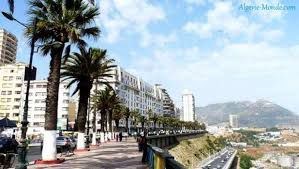
Urban space: The Algerian city facing the challenge of competitiveness
From our special correspondent in Oran: Lyes Mechti
Urban planners and specialists in urban anthropology called, Tuesday in Oran, for studies aimed at deepening reflection on Algerian cities, particularly in the interior of the country and the South, which suffer from poor planning and anarchic urban expansion. Their attractiveness, reduced to the lowest level due to various tensions exerted on them, could very well improve thanks to the potential they enjoy, provided that sustainable development is there.
Speaker during a study day under the theme «The quality of life and competitiveness of the Algerian city: reality and perspectives», organized jointly by the Research Center in social and cultural anthropology (Crasc) and the private group Belux Eclairage, experts in the field of urbanism have indicated that Algerian cities have evolved in a way that has not allowed to frame the territory in a vision of competition. According to them, they do not yet have all the conditions to play the role of international metropolises, because they do not yet have enough functions, activities and services.
«There are not enough well-equipped and well-lit spaces offering the services and services needed by the inhabitants,' the experts point out. They claim that new fragmented urban spaces have emerged in rupture with the existing city, causing dysfunctions in the management of these urban complexes. Algerian cities were then marked by considerable transformations, resulting in «socio-spatial reconfigurations, an alteration of urban identity and uncontrolled urban mutations». Hence the need to intervene on the factors that have made the conditions of competitiveness of these cities are not met and their attractiveness is reduced almost to nothing.
The research-business alliance
For the President of the Scientific Council of Crasc, Dr. Mustapha Medjahdi, 'The Centre for Research in Social and Cultural Anthropology has always been concerned with questions relating to the development of our agglomerations, through studies and reflections made around some of the country’s major cities, including Algiers, Tizi Ouzou, Oran and Constantine”.
According to him, the rapprochement between researchers and economic operators is highly desirable, so that 'the solutions proposed by scientists to the various urban problems experienced by the city can be implemented by economic enterprises'. This is why, at this meeting, CRASC signed a partnership agreement with the Belux group on the exploitation of research results in sociology and anthropology, in order to benefit Algerian cities and its inhabitants of concrete projects.
Hamza Bachiri, Permanent Researcher and Head of the Cities and Territories Division in CRASC, said the day is an opportunity to establish cooperation between a public research institution and a private company. «This meeting is a platform that represents an opening on the themes of the Algerian city that records several changes and a real dynamic that influences the life of the citizen,» he said.
For his part, the co-manager of the Belux group, Hanifi Belaroui, assured that the partnership agreement concluded with Crasc should make it possible to address countless areas of reflection on the subject of the city and provide “solutions so that light is this element of social gathering, but also of economic growth. According to him, our urban space must necessarily be recomposed with the expectations of our young population who love space and openness.
«The city of tomorrow commands new social and economic attributes and announces new practices that need to be framed,» says Belaroui. And to evoke the future urban sites along the route of the Trans-Saharan Route, stating that it will be, in this context, to meet a double demand, social and economic, without distorting the ecosystem of the territories crossed. 'This road to Africa requires solutions from our analyses. They will have to come from rich studies and a lot of insight,' he concluded.

Hanifi Belaroui, co-managing director of Belux: «Urban lighting follows international standards»
From our special Correspondent in oran : Lyes Mechti
The joint manager of the Belux group, Hanifi Belaroui, gives us, in this interview, his opinion on the state of urban lighting in Algerian cities. He explains that preliminary studies of lighting projects are important to determine the levels of illumination of the targeted locations.
Why is Belux interested, as he is today with CRASC, in urban anthropology?
This kind of thematic meeting is not new to us. We have had to organize study days on economic topics in the past and participate in national and international thematic fairs. With CRASC, we have opened a cooperation project, for several months already. On the occasion of the National Day of the city, we decided to concretize our cooperation by signing an agreement to formalize this rapprochement between a research center and an economic operator.
It is with the aim of finding a symbiosis between two entities that wish to contribute to the resolution of the upheavals that the city is undergoing, especially after the period of the Covid-19 pandemic19 and the impact it has had on citizens' movements and the habits of their daily lives. The return of night tourism, lost for several years, and the need expressed in lighting prompted us to engage in reflection on certain socio-economic aspects of the city. With CRASC, we seek to study these aspects, understand them and propose solutions to highlight them.
As a lighting professional, how do you see the place of light in our cities today?
Generally speaking, in all countries of the world, there are areas that are better illuminated and illuminated than others, areas that are a little neglected, and others that local authorities are more focused on being strategic economically, safely, and otherwise. Our cities are no exception. But what is certain is that the public authorities, for many years, have made great efforts and devoted large budgets to switch to new lighting technologies such as LED and solar which, technically, allow to make great energy savings.
It must be said, however, that these new technologies are not always perfectly mastered, hence the fact that some places and areas are either excessively lit or poorly lit. But we can also find perfectly lit places. This of course refers to the importance of preliminary study of lighting projects.
What does Belux propose in this sense?
First propose a capitalization of 50 years of experience. In the area of training, for example, we signed an agreement with the Ministry of Vocational Training in 2002 to train technicians from local authorities free of charge and to include lighting in training modules.
Should we opt for delegated management to better enlighten our cities?
This is not the only way to achieve better public lighting management. But it must be admitted that delegated management has developed well in certain sectors, including household waste collection, drinking water supply and others. It also creates new sectors of activity, develops new economic activities and creates new economic enterprises.
In fact, you have always defended the idea of creating young companies specializing in the installation, maintenance and maintenance of urban lighting. What is it exactly?
We are manufacturers and suppliers of street lighting equipment, but we do not make the installations. Very often, in the projects for which we are asked, we are asked to recommend installation companies. I don’t think there are enough companies that specialize in this area. Young companies are much more multidisciplinary, specialized in construction in general, and deal with electricity, gas but not specifically in urban lighting as exists in other countries.
Some users of the East-West Highway do not understand why such road infrastructure is not illuminated like national roads...
A highway does not need to be lit because there are no passers-by and vehicles are equipped with lighting. This is the principle of street lighting. But a national road is lighted at least to have functionality and safety lighting. It is sometimes necessary to over-light intersections to attract the attention of motorists. And all this is defined by international standards and requirements. But we find that they are not always applied in our country, since we sometimes find places over-lit and other under-lit.
What is the role of innovation in what Belux produces?
Our philosophy is essentially based on quality. And to make quality, it is clear that we must innovate. For us, innovation can be Algerian or foreign, so we have to go and find it where it is. For example, we have just signed a partnership with a foreign company to develop a new range of products called Biodiv.
It is a system that uses artificial lights with colors and tones adapted to the different animal and plant species, thus avoiding the harmful impacts on the nocturnal fauna. This system filters the colours in the light spectrum of the LED lamp to protect sensitive plant or animal species. We also have products that fit into what is called Smart lighting” and the «Smart City».
Have you attempted to export your products to foreign markets?
In September 2023, we participated in an international exhibition in Paris where we were able to have contacts with participating African companies. And this is where we had a first contact with a Cameroonian company, whose head came later in Algeria, last January, to formalize our partnership agreement with him on the opening of a liaison office of Belux in Douala. Other agreements will be concluded and announced in due course.

National City Day: The key elements of a modern city
From our Oran office: Amel Saher
What is the relationship between light, public transport, innovation, scientific research and quality of life and the city? Which social and economic actors influence urbanization and its dynamics?
Some answers to these questions were provided during a study day organized jointly by CRASC and the group «Belux», on the occasion of the National City Day which coincides with February 21.
The event, which was held at the Royal Hotel in Oran, was marked by the participation of lecturers, researchers at CRASC having carried out work in different sectors related to the themes addressed.
First of all, you should know that this study inaugurates a partnership between the Center for Reasearch in Social and Cultural Anthropology (CRASC and the "Belux" group. In this regard, the communications manager of the research center, Ms.Sabrina Refas, Said that this is the first agreement of its kind with a private economic partner. Its main objective is the result of research in sociology and anthropology, and therefore to benifit Algerian business, through the realization of concrete projects on national scale. For his part the general director of "belux", Hanifi Belaroui, welcomed this partnership."The studies developed by CRASC rsearchers have greatly contributed to analyzing, first , and then generating, socio-economic behaviors related to or society," he indicated. Addressing the main theme of the study day and the link with the activity of his group,he noted the importance of light in process of urban construction.
«Light was becoming indispensable for security needs, first, then for travel, highlighting the rich national heritage in a new light,' he said. On another note, Professor Maha Messaoudene, from the Ecole Polytechnique d'Architecture et d'Urbanisme d'Algiers, addressed, in his communication, the challenges of the competitiveness of the Algerian city. In this regard, he observes the rise of globalization in recent decades, which, according to her, has changed the order of things. Therefore, adds the intervener, the question of the competitiveness of territories promoted by international organizations has become «more than ever an undeniably strategic issue». 'While the competitiveness of urban areas has for a long time been understood through the economic approach based on quantitative measures (GDP, GNP, unemployment rate), more or less recent scientific developments have allowed this notion to take a new impetus, integrating other dimensions related to quality of life, such as housing, environment, transport, culture and urban services,' continued Professor Messaoudene. For his part, Professor Sassi Boudemagh, University of Constantine 3, highlighted the role of universities, businesses and governments and civil society, promoting new professional opportunities and creating an environment conducive to innovation and economic growth.
Videos Campaigns
Communication Mr Ould Kaddour CEO SONATRACH
The delegated management by Belux lighting
Scientific Contribution
In the Press
Canal Algeria: architectural multitudes
( Hanifi BELAROUI ) 24.10.2017
Canal Algeria: response to the Minister of Housing
( Hanifi BELAROUI ) 24.10.2017
Canal Algérie: programme of the President of the Republic
( Hanifi BELAROUI ) 24.10.2017
Canal Algeria: our profession
( Hanifi BELAROUI ) 24.10.2017
Canal Algeria: the city living space
( Hanifi BELAROUI ) 24.10.2017
Canal Algeria: the light that drives growth croissance
( Hanifi BELAROUI ) 24.10.2017
Canal Algeria: Djazairi collection
( Hanifi BELAROUI ) 24.10.2017
Canal Algeria: Belux for 42 years
( Hanifi BELAROUI ) 24.10.2017
